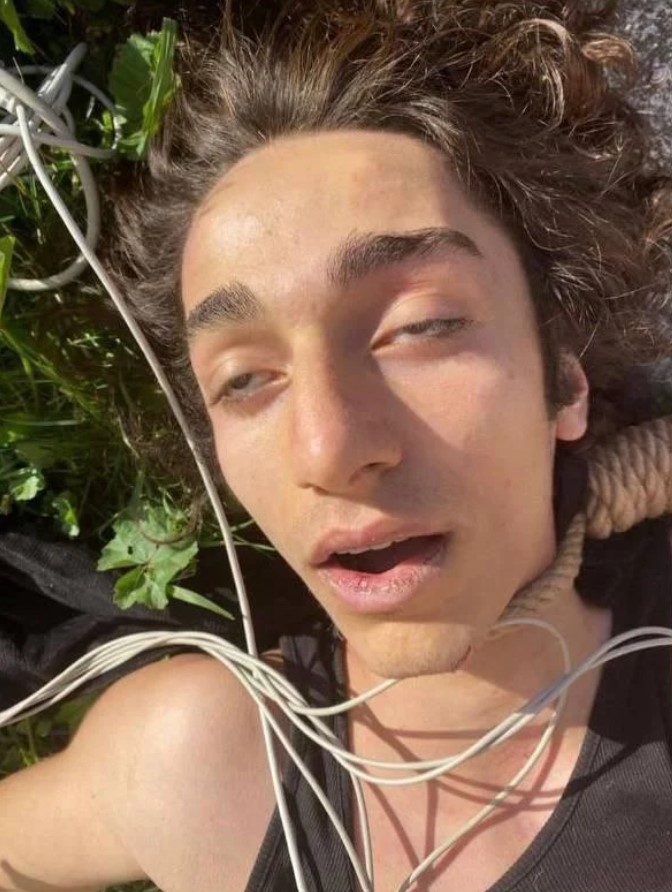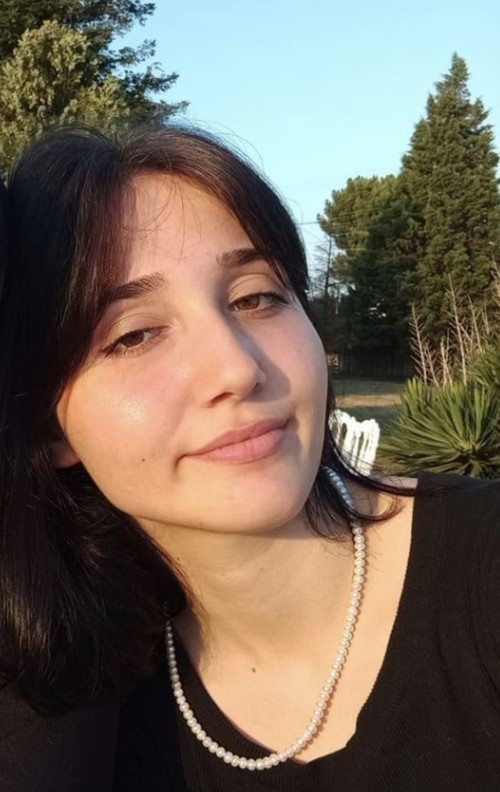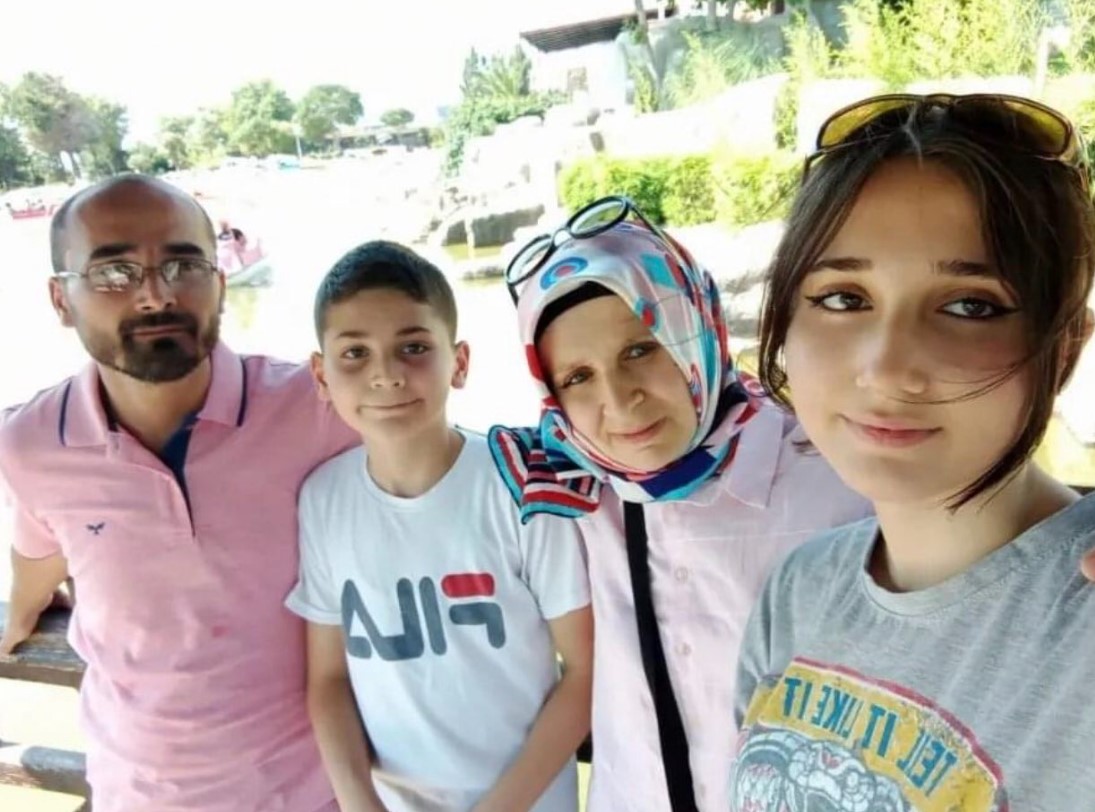Ikbal Uzuner Video (Ikbal Uzuner 7 Dakikalık Video)
In a chilling incident that has captured the attention of Istanbul and beyond, Semih Çelik tragically ended the lives of two young girls before taking his own. This harrowing event unfolded in the historic heart of Istanbul, leaving a community in shock and mourning the senseless loss of young life. Among the victims was 19-year-old İkbal Uzuner, whose life was cut tragically short in a crime that has since sparked widespread calls for justice and a deeper examination of societal issues. The Ikbal Uzuner video, capturing moments from her life and the aftermath of the tragedy, has further intensified public interest and outrage, pushing for urgent legal and societal reforms.
As the details of this devastating incident come to light, the primary source of information has been Hasan Uzuner, İkbal’s grieving father. His firsthand accounts and interactions with the police form the backbone of the ongoing investigation. Through his eyes, we gain insight into the personal tragedies that often get overshadowed by the broader narrative of crime and punishment. Mr. Uzuner’s poignant revelations reveal not only his profound loss but also the harrowing circumstances that led to that fateful day. His statements to the authorities have provided crucial leads and have helped to sketch a portrait of the perpetrator, adding depth to the police’s understanding of the events leading up to the tragedy.
This introduction sets the stage for a detailed exploration of the events, the background of those involved, and the aftermath that has impacted a community. It seeks to offer more than just a recount of a crime; it aims to humanize the victims and highlight the enduring strength of those left to seek justice in the wake of such profound loss.
Content
The Incident and Video, Photos
The day that culminated in tragedy began like any other, yet it unfolded into a nightmare that Hasan Uzuner, İkbal’s father, recounts with heart-wrenching clarity. The first sign that something was amiss occurred when İkbal’s mother, fraught with worry after not hearing from her daughter, decided to call her phone. To her dismay, a man’s voice answered not İkbal’s. He reassured her, somewhat cryptically, that “your daughter is in safe hands.” Confused and increasingly anxious, she called again, only to be informed by another unfamiliar voice that the phone had somehow fallen from the walls, providing vague directions to retrieve it.
Uncensored Ayşenur’s body photo
Uncensored İkbal’s body photo
Uncensored Semih’s body photo

Video of the murderer committing suicide
Video of the Outrageous and Unforgivable Crime Scene
Driven by a growing sense of dread, Hasan and his wife hurried to the indicated location near the city’s ancient walls, a spot known for its panoramic views of Istanbul but not for such grim discoveries. Upon arrival, they encountered a homeless man who handed them İkbal’s phone, claiming it had dropped from above. The couple’s desperation grew as they attempted to scale the walls, hindered by barriers and entangled wires, their hearts sinking with the setting sun.
As they descended, the sight that met them was one of chaos and commotion—a crowd had gathered, their faces etched with horror. Pushing through, clinging to a sliver of hope that İkbal might be found alive amidst the bystanders, Hasan’s world came crashing down around him. There, in a scene that seemed to freeze in time, he saw his daughter’s lifeless body, her sacred head visible among the gathered onlookers, a vision that would haunt him forever.
The immediate emotional impact on İkbal’s family was catastrophic. The shock and grief were compounded by the brutal reality of the situation, unfolding publicly with an audience of strangers. Hasan broke down, his tears a silent testament to the profound loss of a beloved daughter whose life was not lost to fate but stolen by a malevolent force that had once walked the halls of her high school.
This narrative not only captures the factual sequence of events but also delves deep into the emotional turmoil experienced by İkbal’s family. It highlights the stark aftermath of a crime that shook a community, underscoring the enduring pain of those left behind to piece together the fragments of a life taken too soon.
Background Information
İkbal Uzuner was a 19-year-old young woman whose life was tragically and prematurely cut short. Born and raised in Istanbul, she was known for her vibrant personality and academic ambitions. İkbal attended high school in the historic district of Fatih, a place rich in culture but also challenges for a young student like her. It was here, within the ancient corridors of her school, that İkbal first encountered Semih Çelik.
Semih, a fellow student, initially appeared to be just another classmate. However, the dynamics between him and İkbal rapidly deteriorated as he began to exhibit troubling behavior. During their high school years, İkbal faced ongoing harassment from Semih, an ordeal that left deep psychological scars. Despite changing schools to escape his menacing presence, the psychological impact of Semih’s harassment lingered, prompting İkbal to seek professional help. She underwent extensive psychological counseling, striving to overcome the trauma and regain her emotional stability.
Investigation and Legal Proceedings
The police investigation into the harrowing incident involving Semih Çelik has been both thorough and revealing. Detectives have delved deep into Çelik’s past, uncovering a troubling history of behavioral issues and previous run-ins with the law. These findings have proven crucial in piecing together his motives and the escalation that led to the tragic events in Istanbul. The focus has been on Çelik’s pattern of harassment and aggression, particularly towards female peers, a behavior that unfortunately went unchecked until it culminated in irreversible tragedy.
Investigators have been compiling evidence from various sources, including testimonies from those who knew Çelik and İkbal, surveillance footage from the vicinity of the crime scene, and Çelik’s digital footprints. This comprehensive approach aims to construct a timeline of Çelik’s actions and mental state leading up to the incident. Additionally, law enforcement has consulted psychologists to understand the potential psychological triggers that could have led Çelik to commit such a heinous act.
The legal proceedings have thus far focused on ensuring that justice is served, with an emphasis on examining how previous legal interactions with Çelik might have been opportunities to intervene before this tragedy. The case has also raised questions about the efficacy of the legal system in dealing with individuals showing early signs of violent behavior, particularly towards women, and how these systems can be improved to prevent future incidents.
Psychological Impact and Community Response
The psychological aftermath of İkbal Uzuner’s murder on her family has been profound and heart-wrenching. İkbal’s parents, especially her father Hasan Uzuner, have been vocal about their grief and the immense emotional toll the loss of İkbal has taken on them. The family has had to seek psychological support to cope with the enormity of their loss, grappling with the stark reality of losing a loved one in such a violent manner. The community of mental health professionals has underscored the need for ongoing support for the family and others affected by similar tragedies.
Beyond the immediate family, the wider community in Istanbul has reacted with a mixture of shock, anger, and sorrow. Vigils have been held in memory of İkbal, with community members laying flowers and lighting candles at the site of the tragedy. Public statements from community leaders and activists have called for stricter measures against harassment and more robust mental health support systems. There has been a significant outcry on social media platforms, where hashtags demanding justice for İkbal and calling for an end to violence against women have trended. These platforms have served as a space for public grieving and solidarity, bringing together strangers touched by the tragedy.
The incident has sparked broader discussions on the societal norms that enable such violence and the systemic changes needed to prevent it. Educational institutions, local governments, and NGOs are being urged to implement more effective strategies to identify and address harassment and to support victims. There is a growing consensus that community awareness and intervention are key in preventing such crimes, with an emphasis on educating young people about healthy relationships and the importance of respecting boundaries.
In summary, the investigation into Semih Çelik’s heinous act continues to unfold, with legal and psychological insights that could help prevent future tragedies. Meanwhile, the community’s response has highlighted a collective resolve to seek justice and change, ensuring that İkbal’s death becomes a catalyst for positive action against the violence that robbed her of her future.
Statements from the Family
Hasan Uzuner, the father of İkbal Uzuner, has become an emblem of the pain and resilience that follows in the wake of such a devastating loss. He has been remarkably open about his relentless efforts to protect his daughter from Semih Çelik’s harassment, sharing detailed accounts of the measures he took, from changing schools to engaging in constant dialogues with educators about his daughter’s safety. His profound disappointment in the effectiveness of these measures is palpable, as each action seemed only a temporary fix to an ongoing threat.
The Uzuner family’s views on the justice system are steeped in a deep sense of betrayal yet underscored by a demand for reform. Hasan Uzuner has expressed a poignant critique of the legal mechanisms that failed to adequately respond to early warnings about Çelik’s behavior. “We sought help at every turn, and yet the system was blind to the looming threat,” he stated in a recent interview. This critical viewpoint highlights a desperate need for the justice system not only to react more swiftly and decisively but also to adopt preventative measures that protect potential victims before tragedies occur.
Furthermore, the family’s plea extends beyond seeking justice for İkbal; they advocate for a more thorough investigative process and appropriate legal consequences for perpetrators of such violent acts. They hope that their tragic loss will catalyze changes in how cases of harassment and threats are handled, ensuring that future potential victims are protected.
The tragic death of İkbal Uzuner at the hands of Semih Çelik has rippled across Istanbul, raising critical questions about community safety and mental health awareness. This case underscores a crucial societal flaw: the persistent undervaluing of warning signs leading up to acts of violence, particularly against young women. It highlights the necessity for communities to enhance their protective measures and support systems, ensuring that young individuals feel safe and supported in their environments.
Mental health, often overlooked in the discourse around violence, has been thrust into the spotlight as a key component of both preventing and responding to such incidents. İkbal’s struggles with mental health due to sustained harassment emphasize the need for accessible and effective mental health care and support networks. It’s essential for communities to foster environments where mental well-being is prioritized, and where individuals like İkbal can receive the help they need without stigma or delay.
This case serves as a stark call to action for all stakeholders—families, educational institutions, law enforcement, and policymakers—to reinforce their commitment to addressing violence against young women. This includes educating young people about respect and consent, implementing more robust anti-harassment policies, and ensuring that law enforcement officers are trained to handle such cases with the seriousness and sensitivity they require.
Lastly, the tragedy of İkbal Uzuner must not be in vain; it should serve as a catalyst for real change. This means rallying community support for victims’ families, who often feel isolated and helpless in their grief. Communities must come together not only to mourn but to actively participate in creating safer, more supportive environments for all members, especially the most vulnerable. Only through collective action can true safety and security be established, ensuring that such tragedies are not repeated.
Daily Hot News -Orhan Erdemir and Elif Karaarslan Video Leak
Heccymar TikTok Video Viral Completo Leak on Digital Privacy
Meia Cassandra Viral Video Leak and Navigating Privacy
Erin Bugis Viral Video Leak and Unpacking the Impact
Ciya Viral TikTok Video Leak and Its Implications
Whitney Wren and Christen Whitman Video Leak
Video Viral Gorontalo Guru Dan Siswa Full




